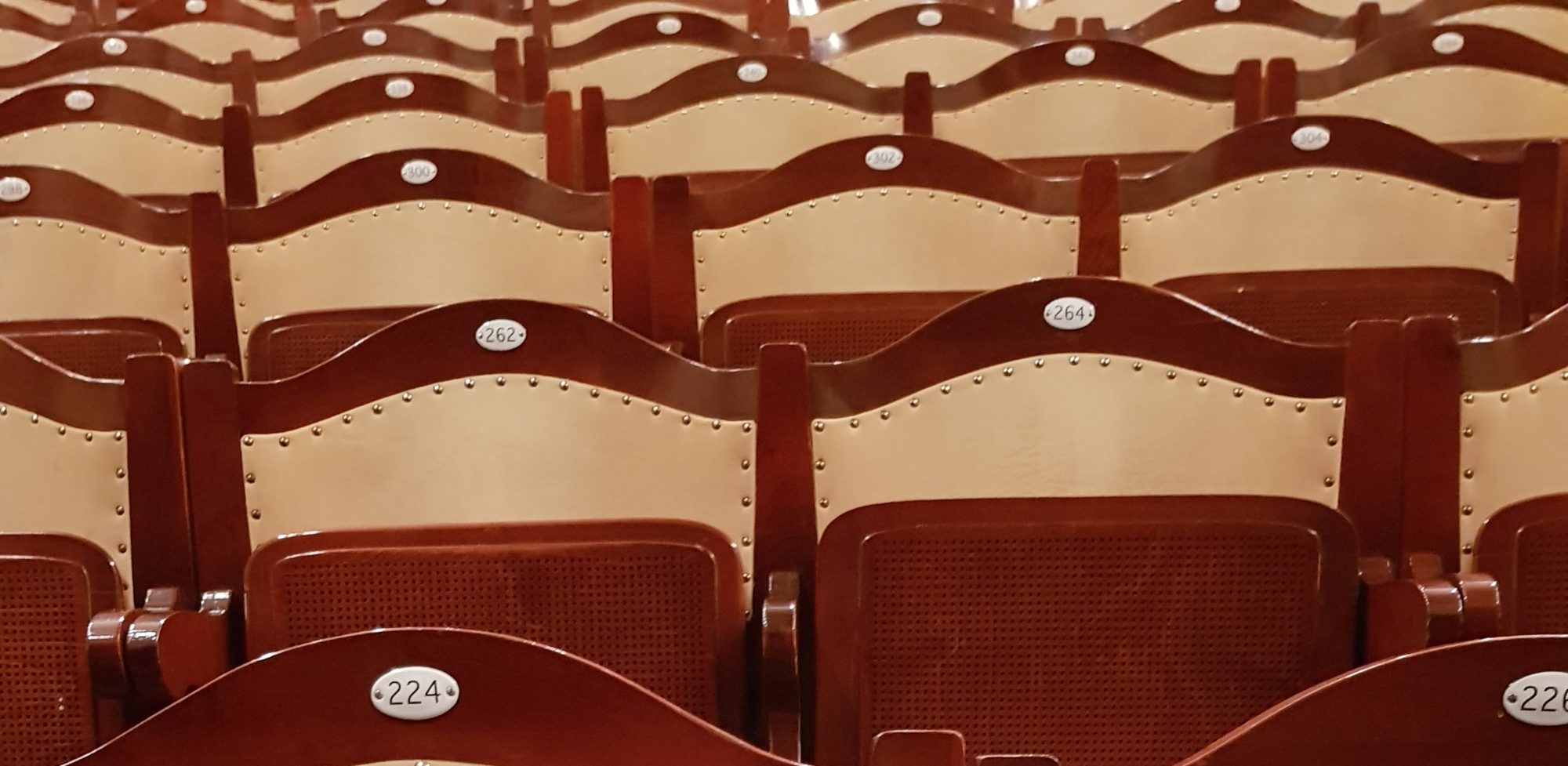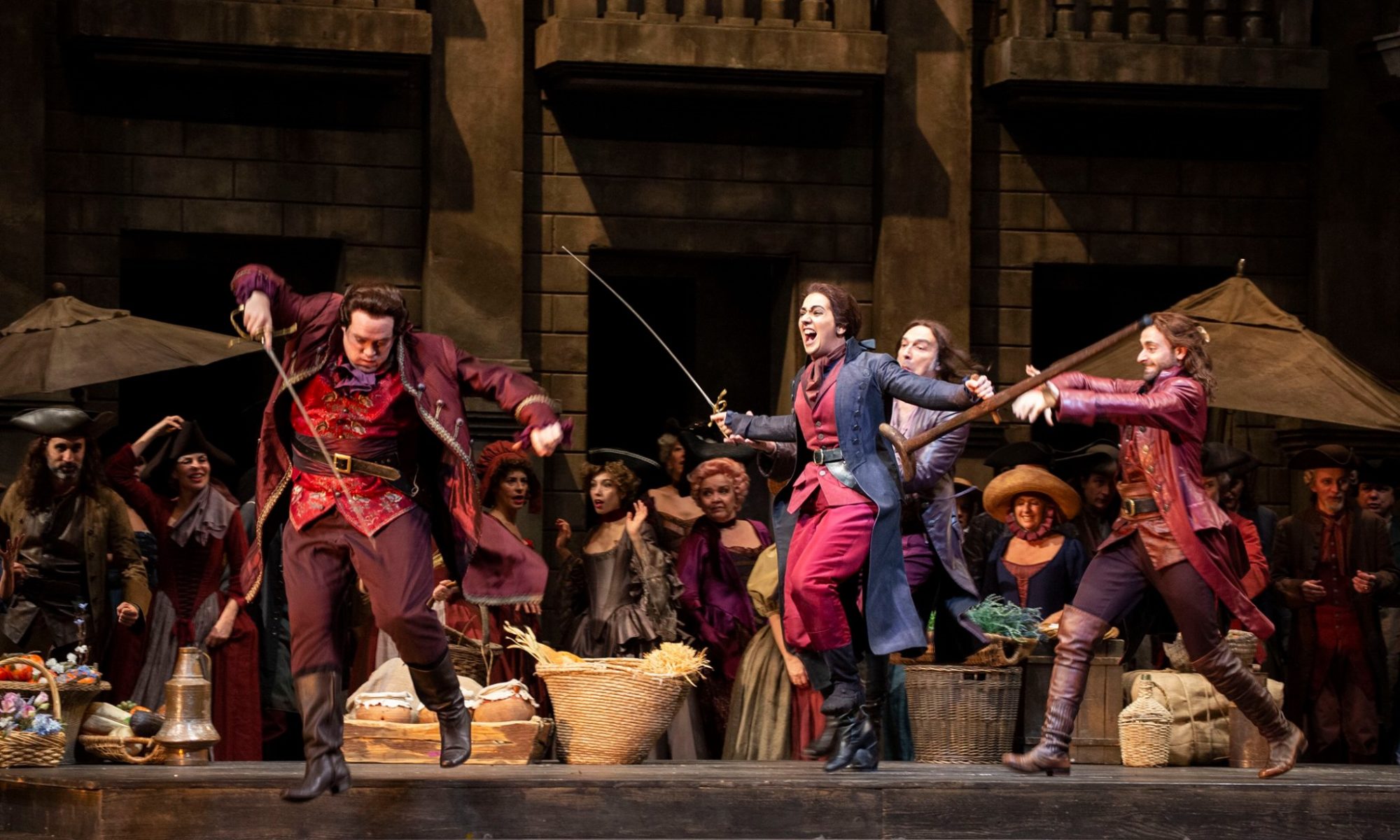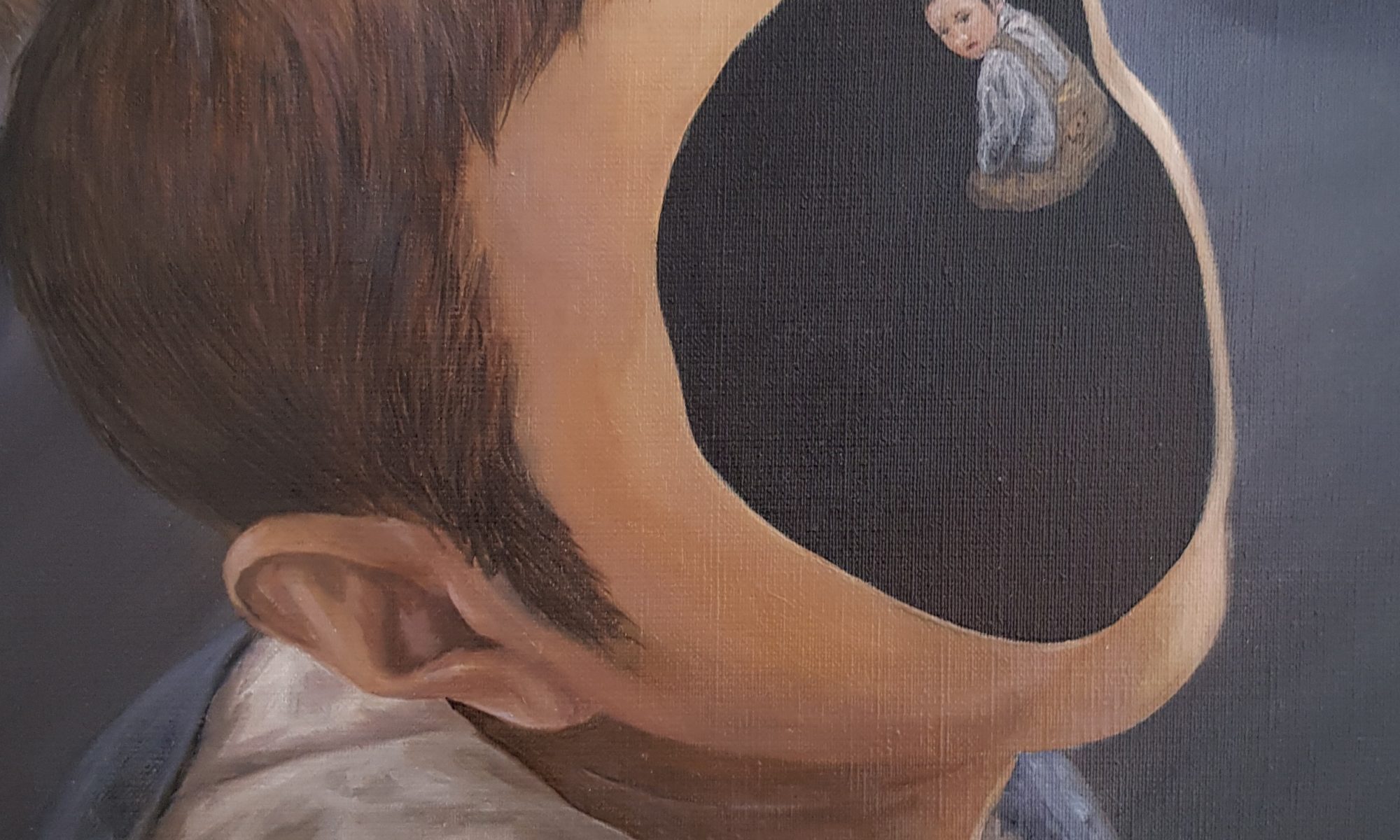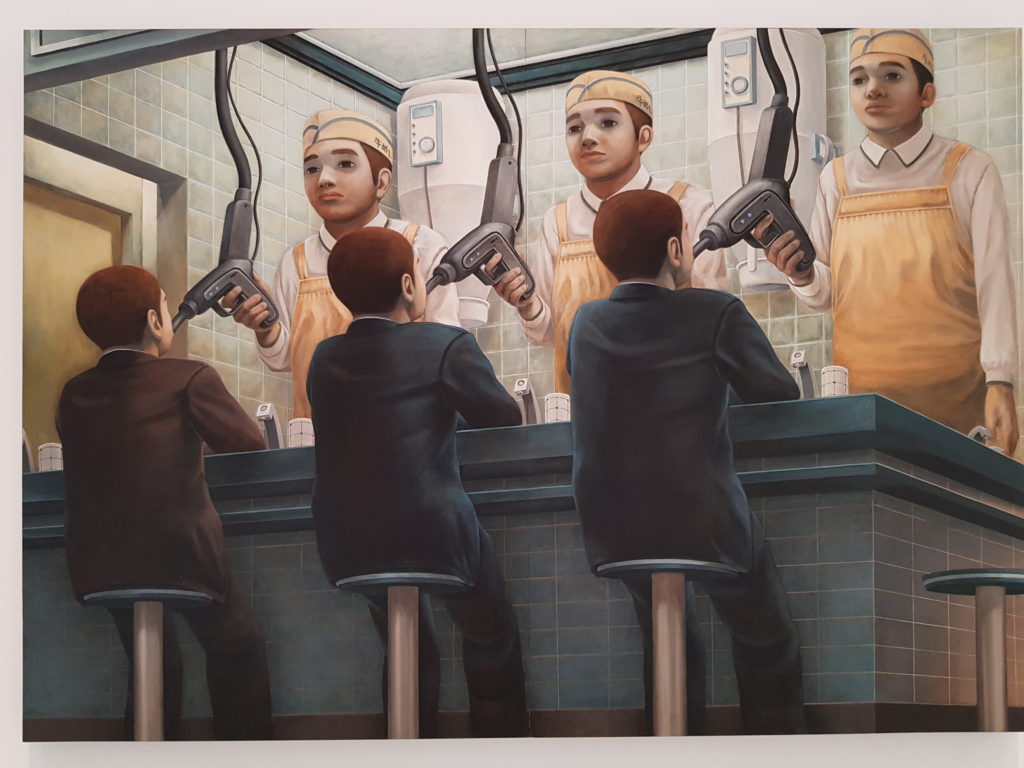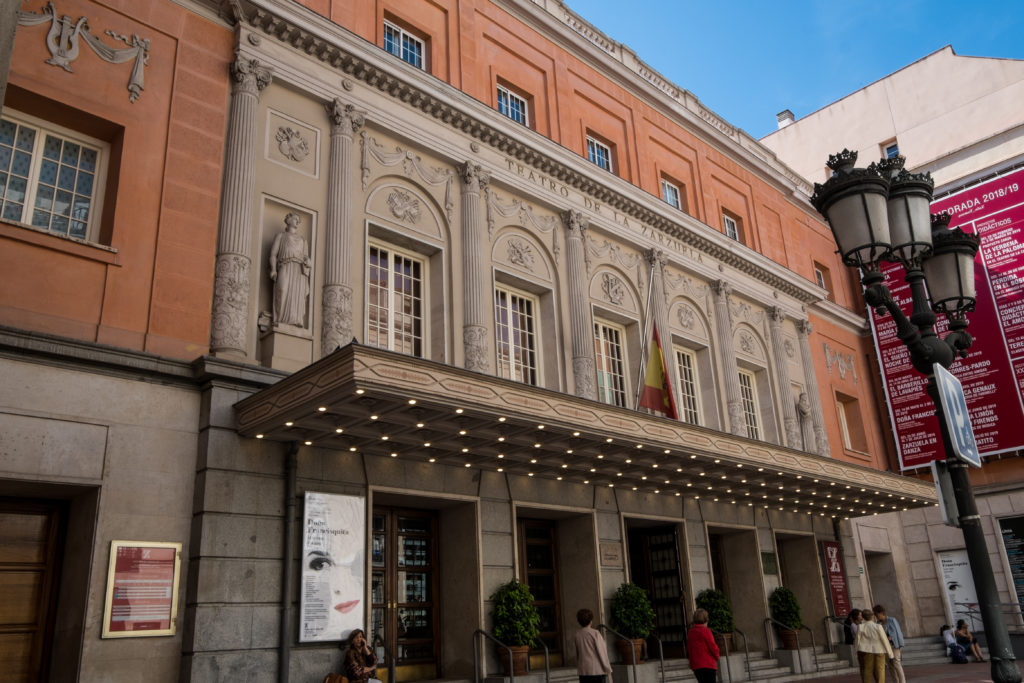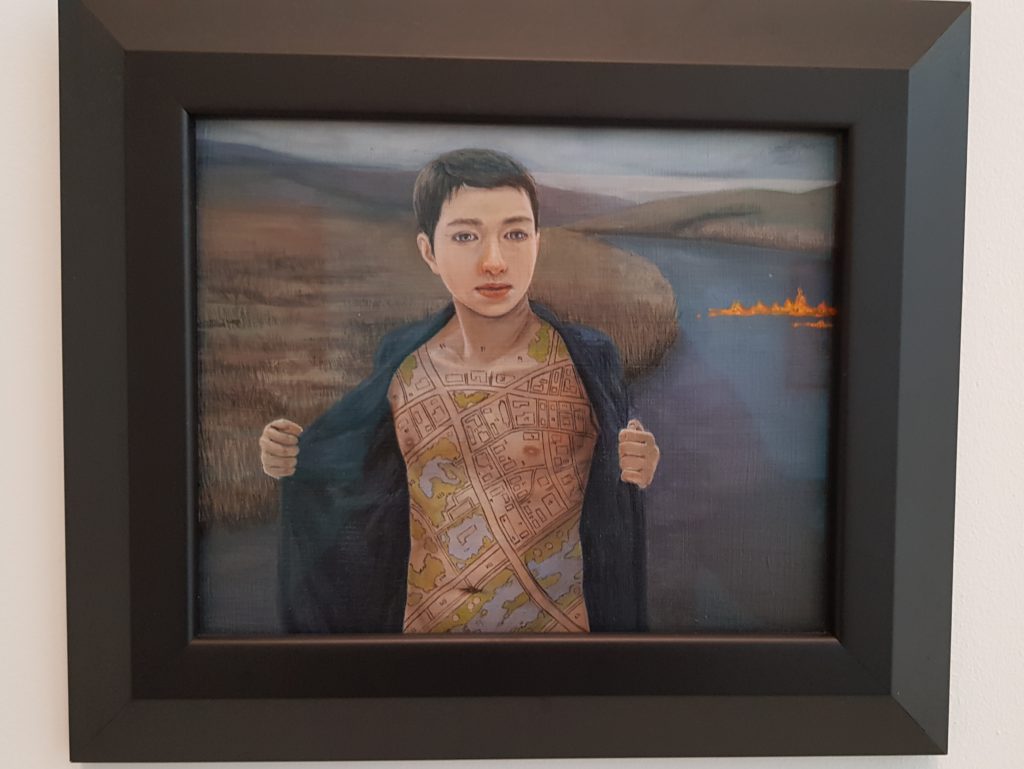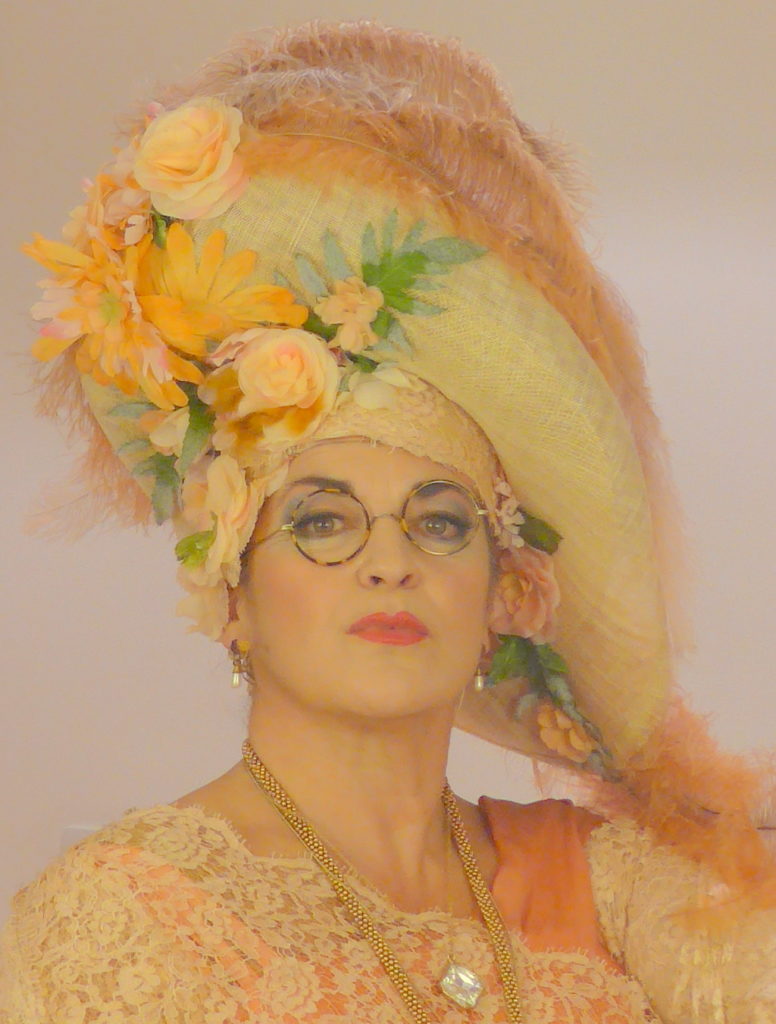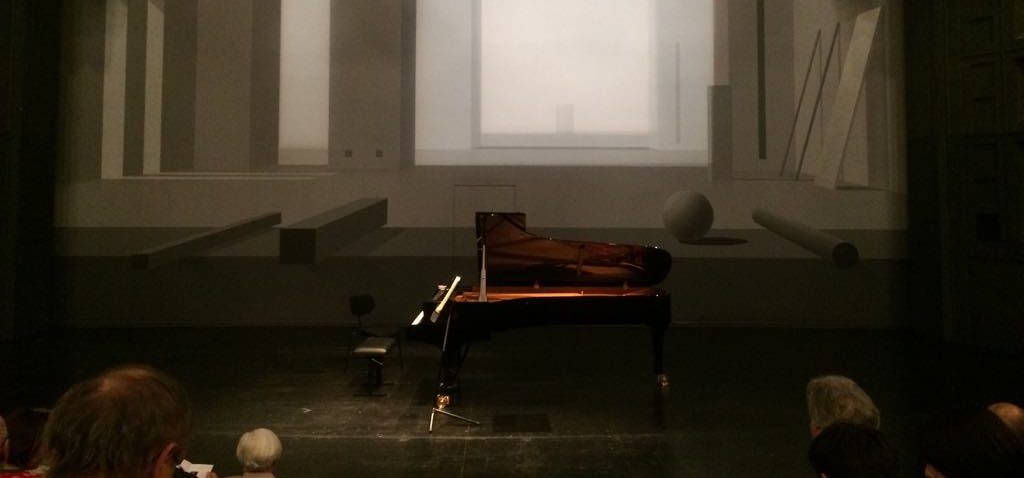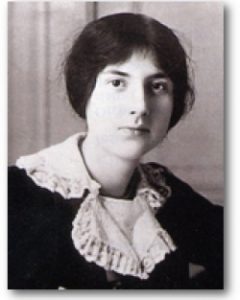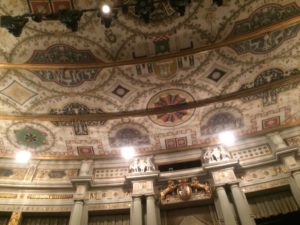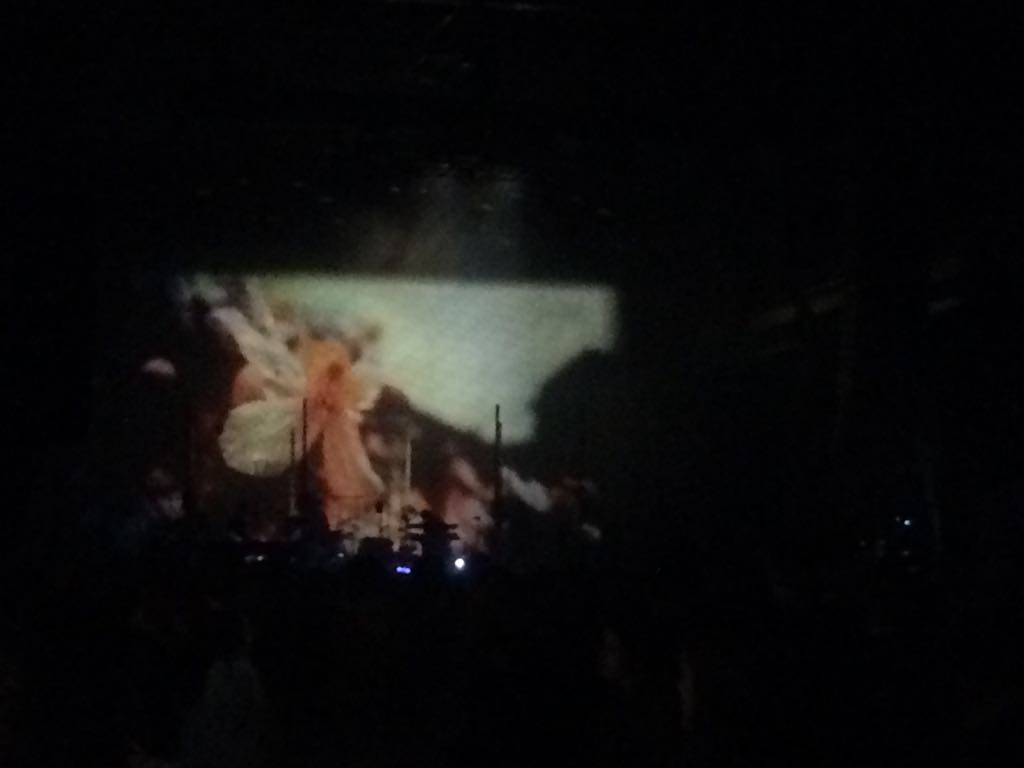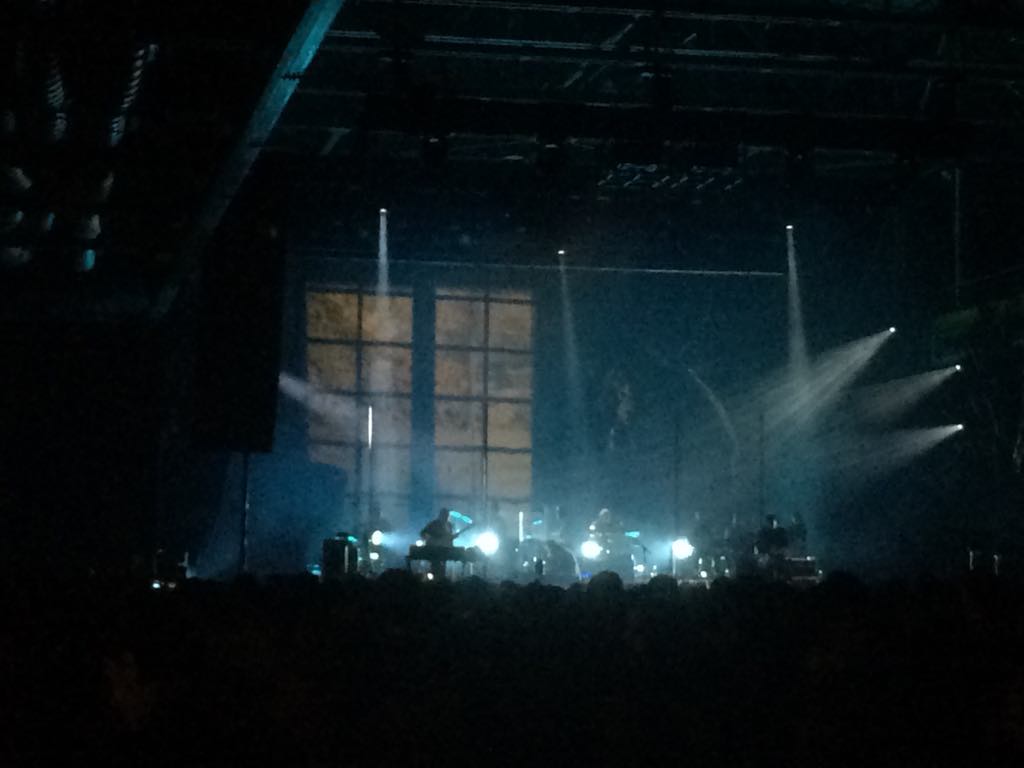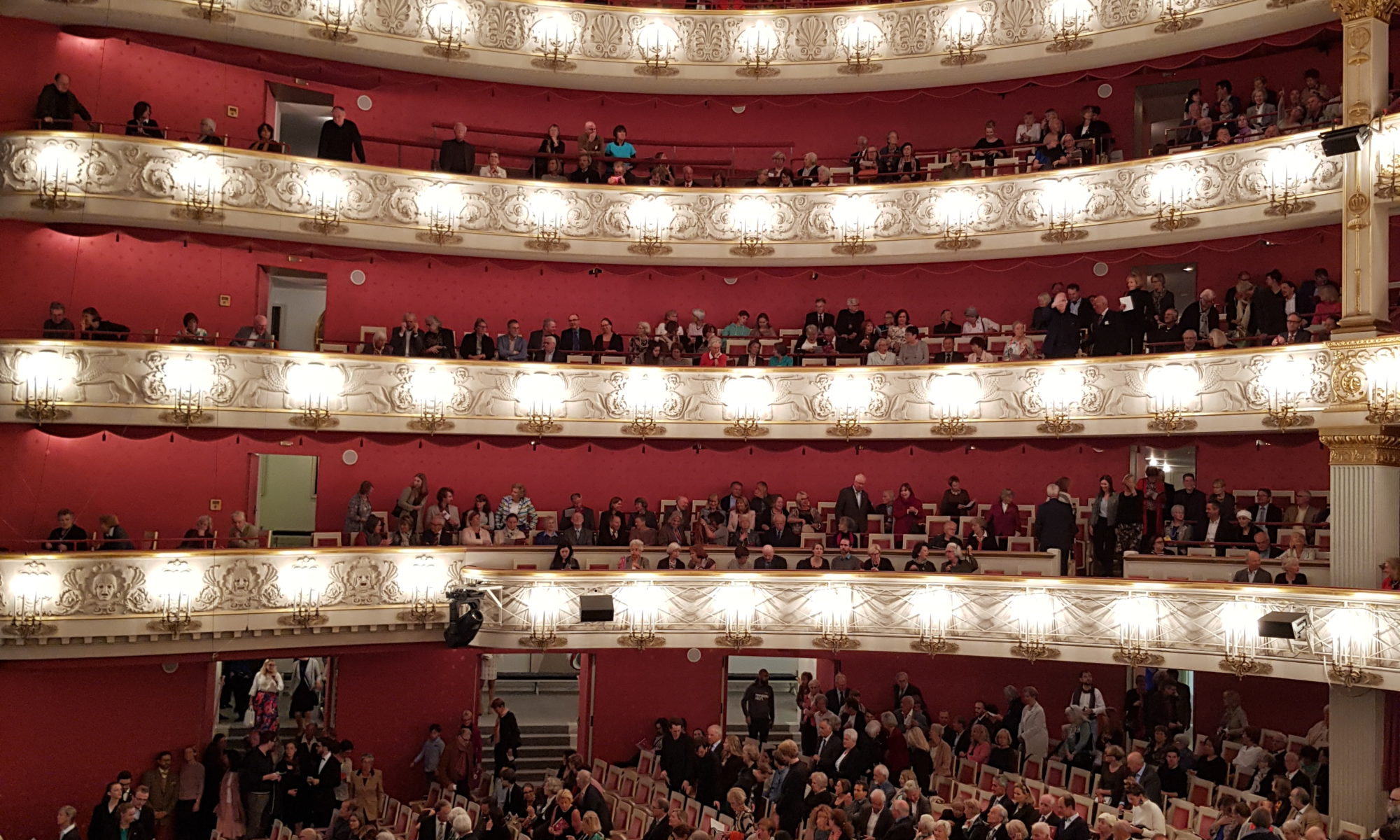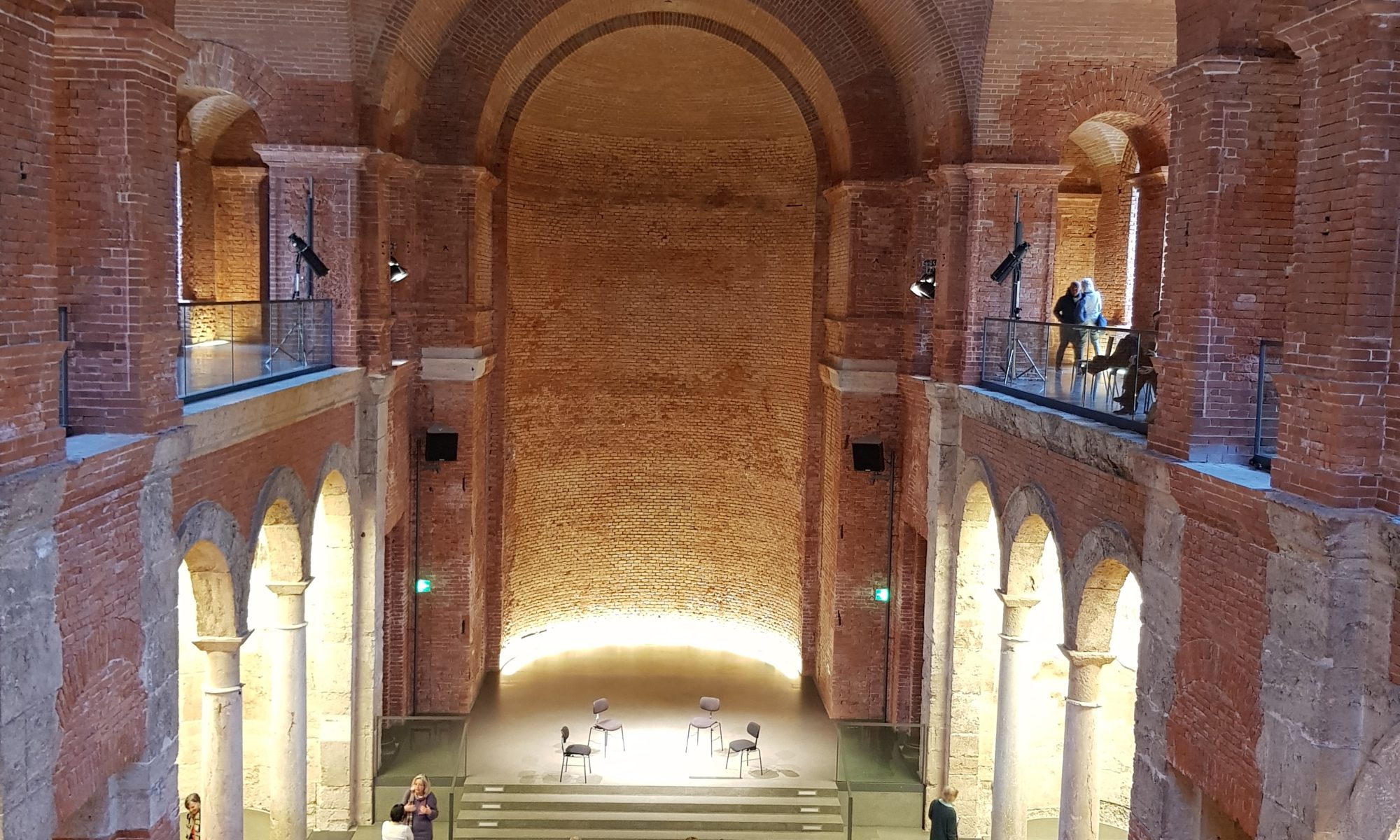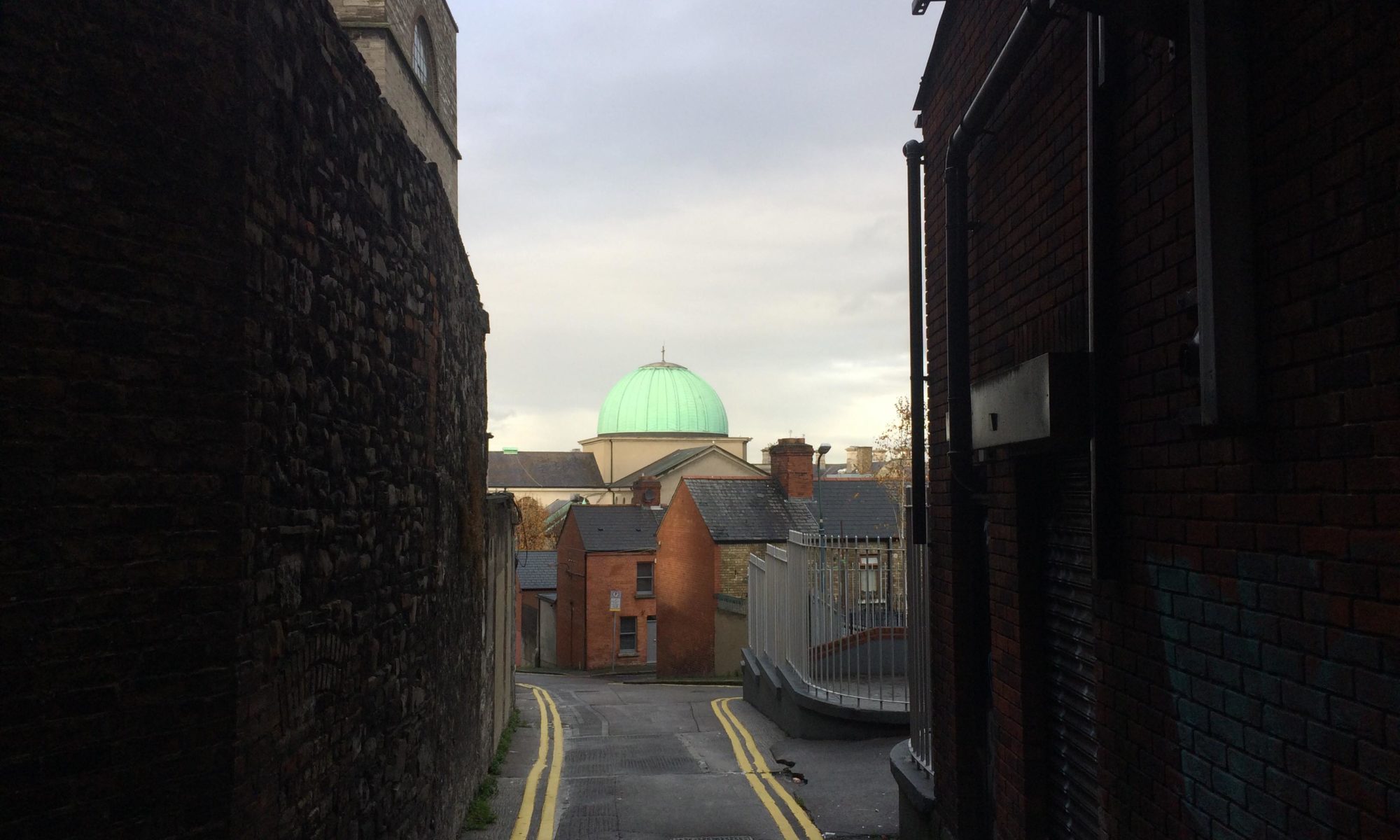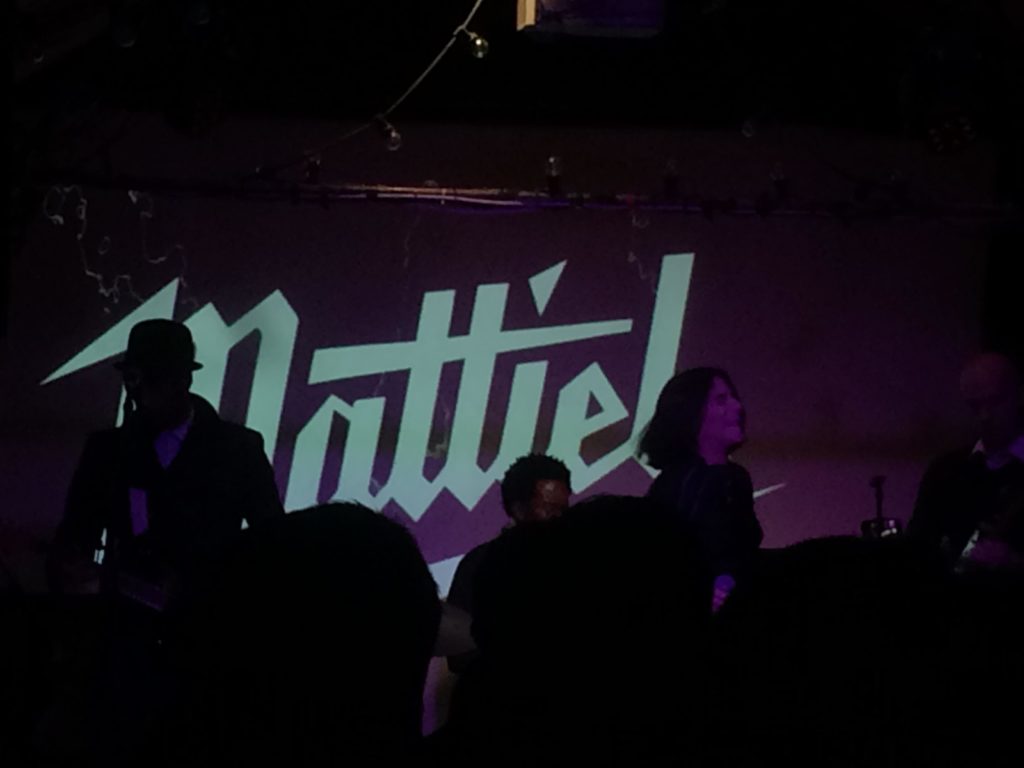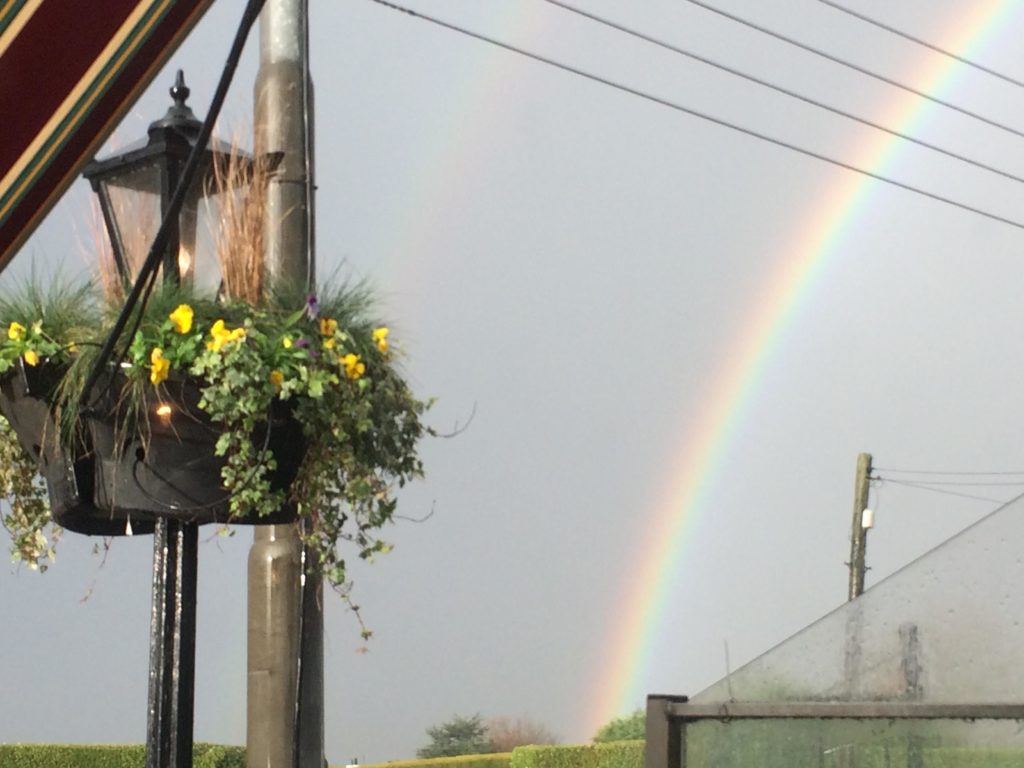“You should not give live concerts without getting paid. You are giving people the habit to see concerts for free, and with the current situation, you should, on the contrary, ask to get paid for it”.
I am an opera singer. Like all my colleagues in the opera/concert business (and many other job sectors), I am losing plenty of contracts probably for the whole season, if not more. Like most of us, I am in confinement (in France), and I try to find a way to keep sharing my passion : proposing some living-room live concerts once a week. Lately, I received this message (above) from a colleague. I don’t agree with it but I can understand why this person wrote those words to me. So, first of all, a little overview of the situation, and then I’ll give my point of view on the subject. I’ll also use the exchange I had with some of my friends/colleagues/followers on that matter. Thank you for your comments and opinions.
Opera houses are closed until July, September or even December. That means, for many of us, we lose 4-6 months, half our season, more or less. It’s a disaster, maybe not for the biggest and famous singers, but for all the others. It’s very frustrating too : a lot of work that is going to dust, so many hours of practicing, improving our technic, getting ready, so many hours of coaching and training, so much joy to be soon performing this or that role in this or that house, meeting our beloved audience… for “nothing”. Or is it really? I don’t think so. All those hours are maybe not going to be used directly as they should, all those roles that we learned are not for tomorrow anymore, but as many other artists, musicians, actors, athletes, we keep our body/voice/instrument ready not only for one moment/role/opera/competition, but for the whole year, and the years to come. It is an endless process. Usually, we are lacking time to be ready, always preparing one role while performing another, always having deadlines that sometimes are hard to follow, having one coaching on a Mozart opera while learning the staging of a Rossini, and looking for a program for a recital for the next month. Now, I am confined. And if I look at the good side of it : I have time. Time to learn, to rest my voice, to improve my technic, to prepare my next season (whether it will take place or not), to try out some new stuff; and time for my body and soul, which are often coming in 3rd place in my priority list, even though they are such an important part of our balance and efficiency. This is how I try to deal with this rather stressful situation, trying to see the positive side, trying to keep busy and active.
And yet, when I speak to some of my colleagues, I often hear that they are loosing the will and motivation to keep singing in their flat/home in these days of confinement. “What for? Whom for? I am not going back on stage before 4 months or more, why should I keep practicing? I am maybe going to have to stop singing totally if I want to survive“, they tell me.
It is indeed very tough and frustrating to be stuck at home, slowed down in this race to the next performance/concert/recital/role, this rhythm we hate sometimes, but are so used to, and that we love, the rhythm that keeps us busy and driven, full of adrenaline despite the stress. Because for most of us, it’s more than a job, it’s a passion. And it is worrying to see that the next 5-6 months are being canceled, and to not be sure to have any income in that long period. For some of us the daily worries are : “How will I pay my bills, my taxes, my rent?” For some others: “How will I feed my family ?” and for a big number of us it can come to: “Should I find another job and stop singing“? Those financial concerns are overcoming the will to keep singing, this passion is overshadowed by material worries and it is difficult to put one’s heart into the daily work on our voice and roles when the future is so uncertain. I think it’s important that everyone realizes that art and music are in great peril and a lot of us artists, musicians, singers, agents, opera houses and opera staffs are going to be bankrupted and broke. Some already are.
This being said, what is the purpose of singing? For me, the main purpose of our art is sharing. I enjoy singing for myself, but I can’t imagine my life without the joy of sharing (not only music), sharing in general. Singing is my way to share a universal language with a great number of strangers, some of them becoming friends, to express an emotion and reach someone else’s sensitivity. It is a fabulous way to bond with people. With the confinement, I am cut from this possibility to share, because of social distancing. But thanks to the internet I have so many other ways to stay connected with my audience/friends: social media, talks, Q/A, recorded videos, collaborations, live streams… And I must say I found it very natural because I can do it (I am lucky to live in a house with a piano and a guitar player), I can propose live concerts from my living-room once a week. It gives me the joy to keep singing for you, to share music with an audience, and it gives me the motivation to learn new songs and arias. To “perform” again, in a very relaxed way. Of course, the quality is far from perfect, having only a phone and karaoke music or guitar. But if I can do it and I enjoy it, and so are the people watching it, why not? Why should my colleagues not sing from their balcony if it can give some joy and beauty to the day of their neighbors?
Well, I had read some articles and posts from colleagues saying those balcony singers are a shame, those live concerts are killing art, etc…. Until I received this one personal message sent to me saying I should not do those live concerts because I give the audience the habit of not paying to see concerts, and I should actually ask to be paid to do it. I was a bit shocked. And then I thought of everything I mentioned above: the worries of the uncertain future, the financial concerns, and I understood why some are saying/thinking this.
I understand it, but I also disagree with this message.
I think these are exceptional times, and there is a common effort from many different fields and platforms to support each of us and help us have a confinement as comfortable as possible: yoga, sport, language, health, meditation, food, games, tv channels, streaming, and so many other apps are being offered for free during this period. Why shouldn’t I also do something for free? Do I sing only for money? Is it really going to give the people a bad habit of not paying for any of this later on?
I think the answer is totally the opposite!
I believe, through those live concerts, people will discover things, will discover a new part of your personality, of your voice, maybe also some music they never heard before. Opera is often something people find difficult to access when “you don’t know it” because it’s too expensive or elitist (in their eyes at least). Now, they can have it at home, accessible, for free, and for many, it will be a great opportunity to try it out. Some will realize how much they need music (or any of those other activities/hobbies/passions) in their lives, what it can bring them, how it helps them stay positive and relaxed during these tough months, and they will run to buy tickets to see live performances when it will be possible ! Also, the quality of a living-room concert filmed with your phone is so not comparable to a real live concert. People can tell the difference, and they will always prefer to go to see a true live concert, in my opinion. But again, these are special times, where one doesn’t have many other options.
I think it is very normal and important that I participate in the solidarity movement in my own way. Do the people who go shopping for food for their elderly neighbors ask to be paid in return? Does the Chef proposing live online cooking recipes ask for money in exchange? Does the stand-up actor making a daily funny video about confinement on his live Instagram account ask for you to pay when you watch it? I don’t think so. And anyway, I think everyone should do what he/she wants and feels like doing, without being judged or criticized.
It’s exactly the same with those numbers of articles telling you: “you should spend time to meditate on this horrible pandemic“, or “you should stay super busy and active in the confinement” or “do less, do nothing, enjoy the void“etc.. come on, LET US LIVE AND BE ! Each person is different, each person has different needs and tempers, and it’s ok, it’s MY/YOUR confinement, do what you want with it, what you feel like, what makes you happy. And if it makes you happy to sing on your balcony or to give live concerts, even if you are not a professional opera singer, DO IT! Those who don’t want to hear it, do it or watch it, have the option not to 🙂
Last but not least : I don’t think people can live for more than 5 months without music/art. So those are the times we will have to find new ways to perform, do concerts, shows, using for instance Netflix, Youtube or even the Tv channel. And in this case, with professional material, real pianist and concert-hall, high quality streaming, we will be able to keep on doing what we love the most : singing, and ask to be paid for it. So Iet’s try it out and create new forms, using modern technologies.
The situation is very hard for everyone. I will conclude by saying: we must raise awareness that artists, musicians, singers, etc are facing a very tough time, an uncertain future, and so are many other people in other jobs as well. We must understand those who don’t find the will to sing when they have their whole season cancelled. We are counting on our audience and every possible person to support us when the time will come, we hope our governments will help all of us, and we hope to be back on stage as soon as possible. In the meanwhile, let’s try to take a big breath, a step back, and realize we are so lucky to be safe, healthy and alive.
These are exceptional times, where we should be kind, full of understanding, love, and support for each other. Let’s stick together, let’s be free to do what we want and feel, what we can or can’t do. And let’s not stop the music.
LOVE. Marina.
